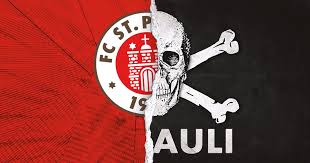St. Pauli FC, known affectionately as FC St. Pauli or simply St. Pauli, is not just a football club; it is a cultural phenomenon deeply rooted in the spirit of its supporters and the vibrant community of Hamburg, Germany. Founded in 1910, this team has transcended sports to become a symbol of anti-establishment views, social activism, and camaraderie among fans. The history of St. Pauli FC is rich with tales of resilience, unity, and an unwavering commitment to their core values.
Origins of St. Pauli FC
Delving into the origins of St. Pauli FC reveals a fascinating narrative about the intersection of sport, society, and culture in early 20th-century Germany 789win.
Founding Principles
St. Pauli FC was founded on the principles of inclusivity and community. Originally established by local workers and youths, St. Pauli was not just a regular football club; it was a space where people from diverse backgrounds could come together to share their passion for the game.
This founding ethos was critical during a time when football was becoming increasingly commercialized and elitist. In stark contrast to many clubs of its era, St. Pauli positioned itself as a grassroots organization focused on the needs and desires of its local community rather than profit making.
The principles that guided the formation of St. Pauli are still evident today. The club’s motto, “Wir sind mehr als ein Verein” (We are more than a club), encapsulates this belief in shared identity and communal responsibility. This idea resonates deeply with fans who see St. Pauli as a vehicle for social change, challenging societal norms through their football journey.
Early Years and Local Rivalries
In its formative years, St. Pauli faced a multitude of challenges. Competing against larger teams with better financial backing and resources, the club had to rely on its fervent local support. The passionate fans who flocked to Millerntor-Stadion played an integral role in building a sense of identity, contributing both morale and financial support.
Local rivalries, particularly with Hamburger SV, began to take root during these early days. As Hamburg’s two main clubs, the matches between St. Pauli and HSV are not merely games but battlegrounds of pride and cultural significance. These encounters epitomize the clash between the working-class ethos of St. Pauli and the more affluent image of HSV, fuelling a rivalry that continues to captivate fans to this day.
The early years also saw St. Pauli navigating the complexities of political environments. The tumultuous atmosphere in Germany leading up to World War I influenced the club significantly, as it had to grapple with the implications of nationalism and militarism prevalent at the time. This complex backdrop shaped what would become a unique character and identity for the club in the years to come.
From Amateur Club to Professional Status
With the rise of professional football in Germany, St. Pauli made a transition from being an amateur club to securing its professional status. This was not an easy feat, as the post-war economic landscape posed significant challenges. Many clubs struggled financially during this period, and St. Pauli was no exception.
Despite these hurdles, the late 1960s marked a turning point as St. Pauli joined the Regionalliga (the second tier of German football). This elevation allowed them to compete at higher levels, drawing in more fans and solidifying their place in Hamburg’s sporting landscape. For many supporters, this journey symbolized hope and resilience, reinforcing the notion that St. Pauli embodied the spirit of the underdog – striving against all odds St. Pauli FC.
The club’s ascension led to greater visibility, attracting new supporters drawn to its unique philosophy and sense of belonging. As St. Pauli stepped into the spotlight, it also began to encounter the complexities associated with success, including commercialization and the pressures of meeting fan expectations.
